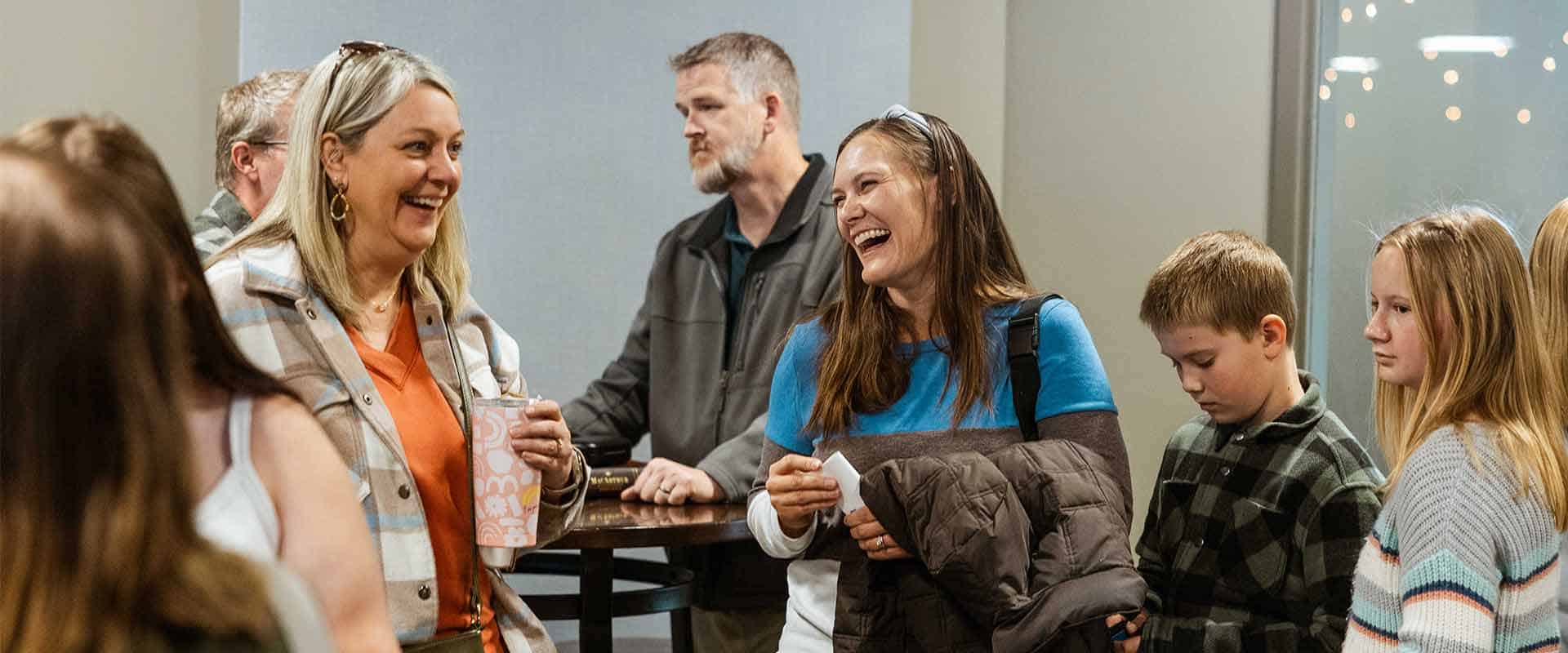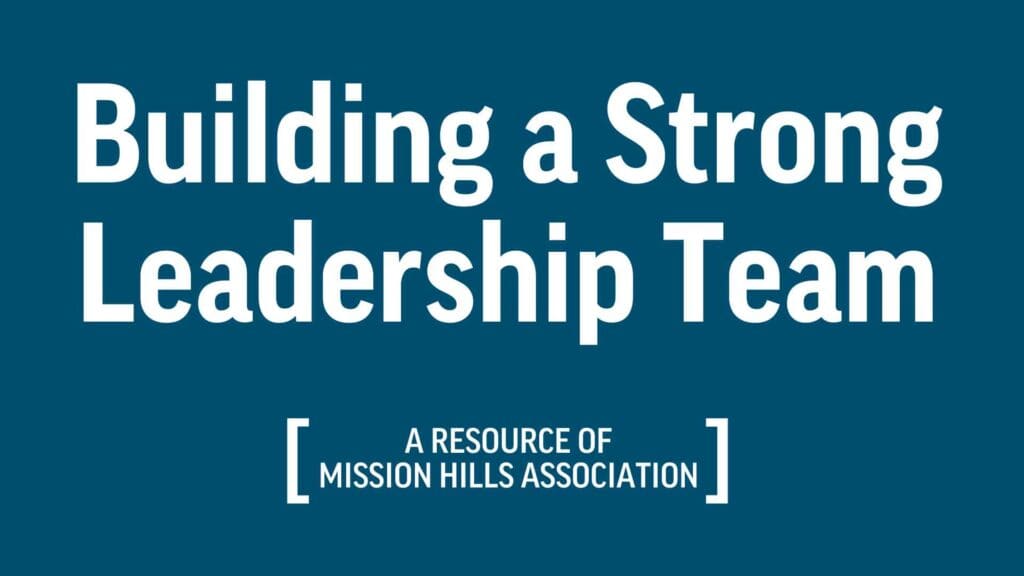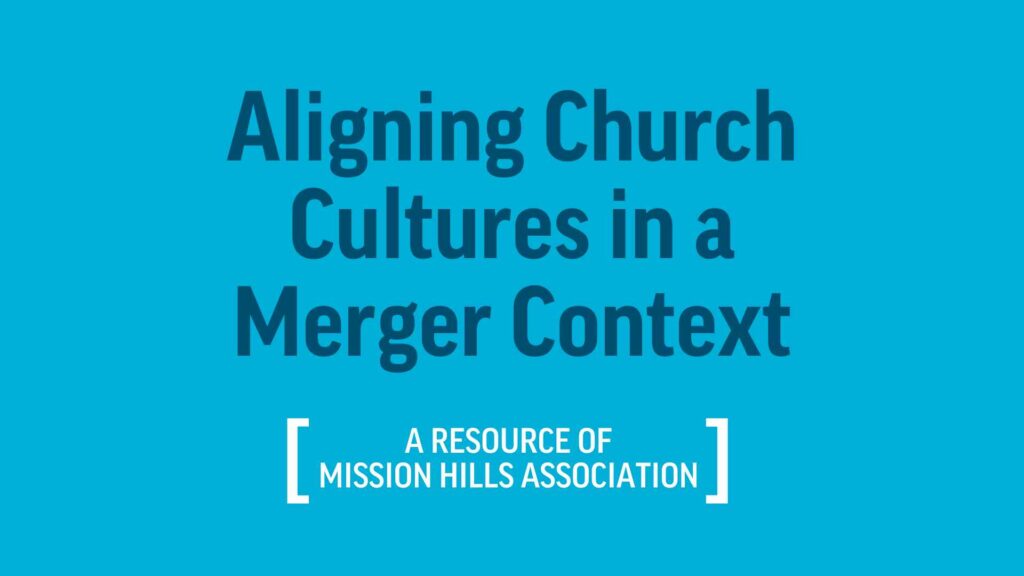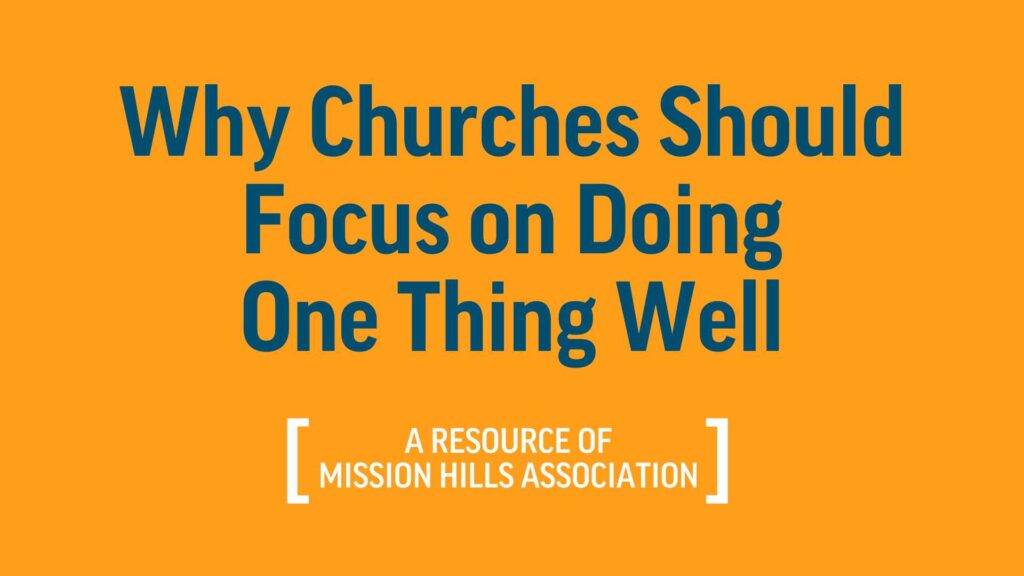
Reaching your community in a meaningful way requires understanding its unique characteristics, needs, and dynamics. Alex Steele, Associate Pastor at Connect Church in Lone Tree, CO, emphasizes that churches must tune into their community’s rhythms: “The heartbeat of a community is found in its rhythms—the ebb and flow of daily life, the pulse of local events, and the cadence of shared experiences. To truly serve, a church must attune itself to these rhythms, aligning its efforts with the community’s needs.”
By assessing your community’s identity, building strong relationships, tailoring outreach efforts, and remaining adaptable, your church can create a lasting impact, no matter how small or new your congregation may be.
Assessing Your Community’s Identity
Each community is shaped by its demographics, history, and local culture. Steele explains that, in their experience, the demographic shift toward more retirees and transient young professionals has prompted them to adjust their outreach strategies to stay relevant and connect with these changing groups. For young churches, understanding the community’s unique makeup is essential to making connections.
Here are key questions to explore:
Who makes up your community?
Research demographics such as age distribution, ethnic diversity, income levels, and family structures. These insights will help tailor programs to your community’s specific needs. For example, if you discover that there is a growing number of single parents in your area, you might consider offering support groups or childcare services during events. For areas with a significant immigrant population, providing language classes or legal aid workshops could make a substantial impact.
What’s the community’s history?
Explore the events, industries, and cultural influences that have shaped your area. What are the values and traditions that have formed the identity of your community? For example, in industrial towns, there may be specific health challenges related to labor-intensive industries. Churches in these areas might organize health fairs and wellness programs or partner with local healthcare providers to address community health issues. On the other hand, in tech-centric areas, offering stress-relief programs or professional development workshops might resonate more.
Understanding the broader community context informs your outreach and allows your church to engage in conversations that matter to local residents. For instance, Connect Church partnered with local organizations like the Help and Hope Center to address food insecurity in their community, a challenge often overlooked in affluent areas. This partnership allowed the church to better understand hidden needs, making their outreach efforts more relevant and effective.
Embracing Flexibility + Adaptability
As communities evolve, churches need to stay flexible and adaptable in their outreach efforts. Steele notes, “The real challenge and opportunity lie in engaging those who may face more barriers to participation.” For example, Connect Church recognized that many families with young children felt unable to participate in outreach due to the demands of parenting. To overcome this, they created opportunities for families to serve together, such as organizing a toy drive where children could bring gifts directly to the Help and Hope Center. This hands-on involvement made service more accessible for young families, fostering a sense of belonging and purpose.
Flexibility doesn’t just mean creating programs that fit within people’s schedules; it’s about being open to trying new things and adapting when something doesn’t work. Connect Church had to adjust as they realized some of their initial outreach plans weren’t resonating with certain groups. By experimenting and listening to feedback, they created programs that better aligned with the community’s needs.
Churches can remain adaptable by creating leadership opportunities for local residents, involving community members in decision-making, and actively seeking feedback to ensure programs resonate with everyone—not just the usual volunteers. As Steele suggests, empowering more people to contribute, regardless of their capacity, helps meet community needs and strengthens the church community itself.
Build Relationships + Trust
Building relationships and establishing trust within your community is essential for impactful outreach. This goes beyond transactional events like food drives or service projects. It’s about being a consistent, positive presence. Steele stresses the importance of active listening: “Listening is one of the most powerful ways to build trust. Walk through your community, ride along with a police officer, or attend city events to observe and engage.” These simple actions can provide deep insights into the needs and challenges of your community.
Active listening also includes having one-on-one conversations with local residents, hosting community forums, or conducting surveys to gain a clearer picture of the issues people care about. When churches take the time to truly listen, it shows a level of respect and commitment to the community that builds long-lasting relationships.
Connect Church regularly collaborates with local schools, businesses, and non-profits to leverage their collective resources and serve more effectively. Steele points out that one of the keys to their success is partnering with organizations already doing great work rather than reinventing the wheel. For example, they found success partnering with the Care Portal, which helps churches meet vetted, tangible needs within their neighborhoods.
Tailoring Your Outreach Efforts
Once you understand your community’s unique needs, you can tailor your outreach programs accordingly. Whether offering language classes for immigrants, job training for unemployed individuals, or creating support groups for specific needs, it’s important to remain flexible and attentive to emerging issues.
Tailoring your communication is also essential. Different segments of the community respond to different types of messaging and outreach channels. For example, younger generations may be more likely to respond to social media outreach, while older residents may prefer traditional methods like community bulletin boards or newsletters. Ensuring that your church communicates in ways that resonate with different groups will make your outreach efforts more effective.
Highlight Local Collaborations + Success Stories
At Connect Church, partnerships with local organizations such as Care Portal and the Help and Hope Center allowed the church to address pressing needs like food insecurity. These partnerships were essential in helping the church overcome the challenge of not having a permanent facility, showing that even small, mobile churches can make a big impact through collaboration.
By developing programs that encourage families with small children to engage in service, Connect Church has successfully created outreach opportunities that meet the needs of their entire congregation, regardless of family size or schedule. This kind of inclusive approach is vital for growing churches looking to engage all segments of their community.
The Power of Showing Up
A consistent theme in Steele’s advice is the importance of simply showing up. Whether at local events, city council meetings, or school board gatherings, being present in the community allows your church to build a reputation as a reliable, caring entity. As Steele puts it, “Sometimes the ministry of presence is more impactful than anything we can say or do.” Even if you’re a small or new church, showing up where people are already gathered—whether it’s a neighborhood clean-up, a town fair, or a parent-teacher association meeting—can create opportunities for meaningful engagement.
Engaging Through Authentic Service
Steele highlights a critical point: “Serve without an agenda.” While churches may feel pressure to use every outreach event as an opportunity to evangelize, sometimes the most impactful thing you can do is serve genuinely, with no strings attached. This type of service speaks volumes and often opens the door to deeper conversations and connections later on.
As a church grows, building a reputation for authentic, selfless service can be a key way to integrate into the fabric of the community. Whether it’s offering free childcare during local events, participating in community beautification projects, or partnering with local businesses for outreach, these acts of service can leave a lasting impression.
Community engagement is not a one-time event—it’s an ongoing process that requires patience, persistence, and genuine commitment. As you continue to learn about and connect with your community, you’ll discover new opportunities to make a positive impact and fulfill your church’s mission in a way that resonates deeply with the people you serve. Connect Church’s journey serves as a reminder that even small, mobile churches can make a significant difference by staying adaptable, fostering partnerships, and showing up in meaningful ways.




